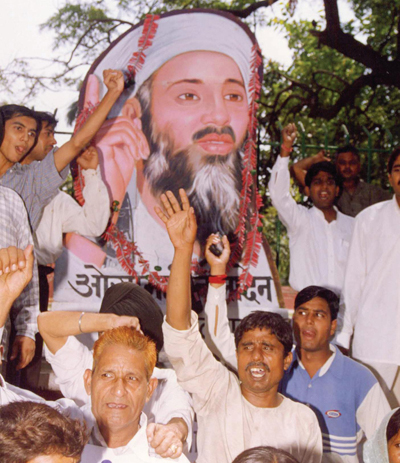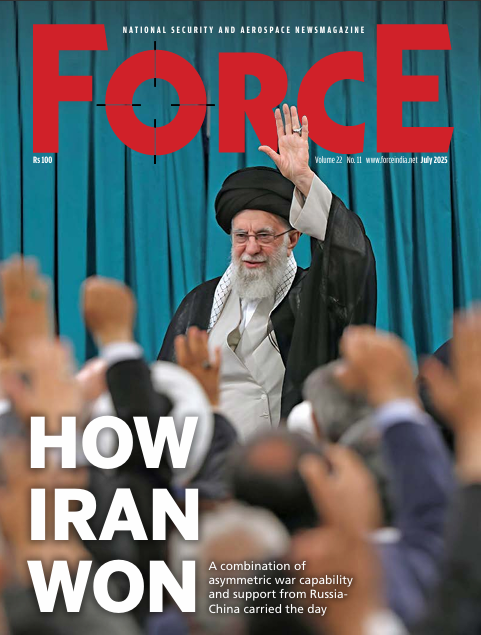Guest Column | Fighting Together
Radhavinod Raju
The United States and India represent the world’s most powerful and largest democracies, with a combined population of nearly 1.5 billion people. Both are victims of Islamist terrorism. With a number of converging interests in central, south and south-east Asia and the Indo-Pacific regions, these countries have come together in a strategic partnership that is bound to get strengthened in future. Cooperation in the field of counter-terrorism has been a significant part of the partnership. Let us see how the two countries have responded to terrorism, and how they can cooperate with each other.
The United States has faced terrorist attacks within and outside the country. Some of the major attacks on outside US interests include the attacks on the US embassies in Nairobi, Kenya and Dar-es-Salaam, Tanzania by al Qaeda in 1998, killing more than 200 people, including Americans, triggering missile attacks on al Qaeda camps in Afghanistan. The warship USS Cole was attacked by al Qaeda in 2000, killing 17 US marines. While the attacks on the World Trade Centre by Ramzi Yousuf and that on the CIA Headquarters by Aimal Qazi in 1993 were major attacks, the most devastating one on US power was mounted by Osama bin Laden’s al Qaeda on the World Trade Centre and the Pentagon on 11 September 2001, killing almost 3,000 people and bringing down the twin towers, symbols of American power.
A couple of months before the 10th anniversary of 9/11, President Obama said that he has no greater responsibility than protecting the American people. He further said, “Though there are many potential threats to our national security, it is the terrorist threat from al Qa’ida that has loomed largest in the decade since 11 September 2001. And yet today, we can say with growing confidence — and with certainty about the outcome — that we have put al Qa’ida on the path to defeat. With an unrelenting focus on the task at hand, and mindful of the challenges still ahead, we will not rest until that job is done.”
Steps taken by the United States following the 9/11 attacks include creation of the Homeland Security department within weeks of the attacks with the ‘primary responsibilities of protecting the territories of the United States and protectorates from, and responding to, terrorist attacks, man-made accidents, and natural disasters’, with about 170,000 staff and a budget of over 40 billion dollars. At current levels, the Homeland Security department has over 200,000 staff and a budget of nearly a 100 billion dollars. Earlier, a formal document outlining ‘National Strategy for Homeland Security’ describing in some detail the objectives and aspirations of this department was released. It brought under its umbrella about 22 departments that handled different aspects of American security.
Only the United States, as the sole super power of the world, could have pressured Pakistan to take a u-turn in Afghanistan, mount an attack on Afghanistan to throw out the Taliban, create human sources and technological intelligence to trace and take out al Qaeda leaders in drone attacks in north and south Waziristan, and eliminate Osama bin Laden in an operation in Abbotabad, in the heart of Pakistan, violating the sovereignty of that country. The Federal Bureau of Investigation, the agency that looks after the internal security of the United States, is authorised to register and investigate a case, though the occurrence is outside the US, if an American citizen is killed or harmed. The FBI registered and investigated the Indian Airlines hijacking case and our own 26/11 attacks in Mumbai, as American citizens were targeted and/or killed in these attacks. Steve Coll’s book The Ghost Wars describes in some detail the projection of American power in the defence of its homeland — the colossal investment in funds and manpower notwithstanding.
Within weeks of the 9/11 attacks, the United States Congress passed ‘The USA PATRIOT Act’ that was signed into law by President Bush. The title of the act is a ten letter acronym that stands for ‘Uniting (and) Strengthening America (by) Providing Appropriate Tools Required (to) Intercept (and) Obstruct Terrorism Act of 2001’. Though there were opponents of the new law, which was seen as too intrusive, both Democrats and Republicans combined to have it passed, and though the law had a sunset clause after four years, it continued to get passed, and recently, President Obama has given it a fresh lease of four years. It may be recalled that some of the hijackers of the 9/11 incidents had got into the United States months before the attacks in preparation for the attacks. Though the FBI was tracking some of them, and the CIA had inputs that they had entered the United States, these two premier agencies failed to cooperate and neutralise the threat.

Anti al Qaeda agitation
US citizens were therefore less intolerant of the fact that their privacy was being invaded to strengthen national security through this stringent law.
The act enabled law enforcement agencies to
(a) search telephone, e-mail communications, medical, financial, and other records;
(b) eased restrictions on foreign intelligence gathering within the United States;
(c) expanded the secretary of the Treasury’s authority to regulate financial transactions, particularly th
Subscribe To Force
Fuel Fearless Journalism with Your Yearly Subscription
SUBSCRIBE NOW
We don’t tell you how to do your job…
But we put the environment in which you do your job in perspective, so that when you step out you do so with the complete picture.









